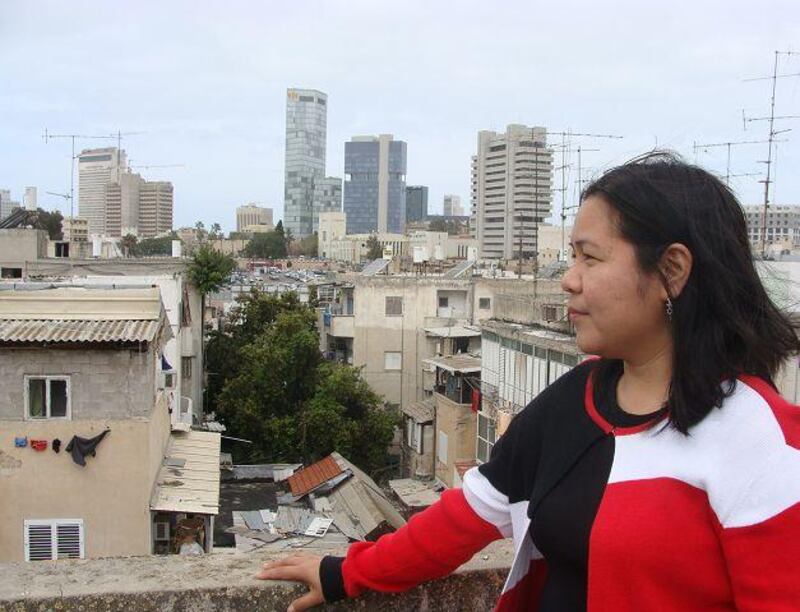TEL AVIV // Migrant worker families are worried they will lose their livelihoods as Israel's immigration police plan to expel more than 3,000 people next month. Nearly half of the 150 congregants of Pastor Ruby Austria's church have disappeared since the Oz Unit, a strong arm of the immigration police, took to the streets last July. Thousands have left the country out of fear. Hundreds have been deported.
Ms Austria, 36, is an illegal resident who, along with her husband and their seven-year-old daughter, faces deportation to the Philippines. In recent months, many churches that serve migrant labourers, mostly from Asia, have seen their numbers grow so thin that they were forced to close. But Ms Austria has been busier than ever. She received a constant stream of congregants worried about Israel's plan to expel hundreds of families, including children and their parents, at the end of the school year in June.
"They come to me and cry - what will happen, what will be? The mothers have fear all the time, the [sense of] being threatened. The moms are harassed and interrogated," she said. Because of the plans to deport Israeli-born children, the current campaign has drawn tremendous criticism. And, pointing to the prime minister Benjamin Netanyahu's claims that foreign workers threaten the Jewish character of the state, some observers have called the campaign racist.
Sabine Haddad, a spokesperson for the ministry of the interior, denied that moves against migrant labourers are related to preserving the Jewish character of the state. "There is no problem with legal workers," she said. "Our unit is doing what the government says." Ms Haddad emphasised that the Oz Unit is not currently arresting or deporting children or their parents. A special committee is convening to consider the deportation of families.
If the plan is finalised, it represents a move against illegal residents, not against children, parents or foreign workers in general, she added. Israel is home to approximately 300,000 migrant labourers, primarily from the Philippines, Thailand, China, India, Nepal, and Sri Lanka, with the Filipino community making up the largest group. It is estimated that 250,000 of the workers are illegal. A majority arrived legally but became illegal after overstaying or losing their work visas, which are generally valid for 63 months.
Speaking to The Jerusalem Post, Tamar Shwartz of the Mesila Aid and Information Center for the Foreign Community, a non-governmental organisation in Tel Aviv, said the raids on immigrants "threatened the social network" of migrant labourers and refugees. While children have been particularly affected by the campaign, Ms Shwartz said the whole community "is very much weakened by the activities of the immigration police. Everything that makes this community strong is a blessing".
Ms Austria, who also runs a kindergarten for children of foreign workers, arrived in Israel 13 years ago to work as a caregiver. Her visa ended in 2002, just before a major wave of arrests and expulsions began. Israel targeted men, in the hope of encouraging families to return to their countries of origin. Husbands and male pastors were deported, leading to a rise in single mothers and women at the pulpit.
The difficulties facing the community were an inspiration for Ms Austria to become a pastor. Despite her illegal status, she began attending the Bible Institute of Jerusalem and, after completing her studies, was ordained as a minister. Ms Austria offers weekend services as well as impromptu prayer sessions. When the makeshift church, held in what was once a small apartment, is occupied by the kindergarten, Ms Austria ministers on the roof. Occasionally, the Oz Unit is in sight below.
The children are beginning to be affected by the stress, according to Austria. "Even if you don't tell the children, they feel what the mother feels," Ms Austria said. "When the Oz Unit first came, the children were crying all the time, some weren't eating, some stopped speaking. They were very fearful. It was very hard." foreign.desk@thenational.ae





